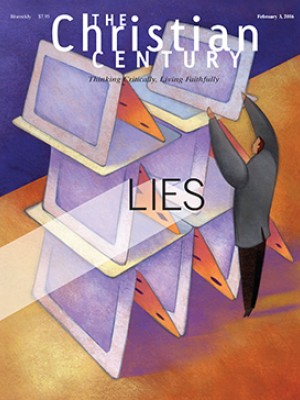Mary Scullion, Philadelphia's saint of the streets
(The Christian Science Monitor) For nearly 40 years, Mary Scullion, a Roman Catholic nun in Philadelphia, has spent her days amid homelessness, addiction, mental illness, and poverty.
Though she was named one of Time magazine’s 100 most influential people, she rejects any celebrity.
“This is about all of us,” she said. Her mantra is, “None of us are home until all of us are home.”
Scullion is cofounder and executive director of Project HOME, begun in 1989 as a single emergency winter shelter for homeless men. Today, it has a $30.5 million budget and offers a multipronged continuum of care aimed at ending chronic homelessness by going at its root causes. It begins with person-to-person appeals to the homeless to come inside. There it provides long-term supports—housing, jobs, education, medical care—to keep them from returning to the streets.
Read our latest issue or browse back issues.
“We learned that shelter wasn’t enough; people need homes,” Scullion said. “They need jobs, education, access to health care. They need community.”
Scullion’s organization coordinates outreach teams and housing placements for all agencies serving homeless people in Philadelphia. The teams, which check daily on the homeless across the city, carry hand-held computer-linked devices. They have real-time data on all residence availability in the city, so an individual can be placed in the right facility for his or her needs.
Project HOME has become one of the most effective homeless organizations in the country. It has spent decades studying, learning, and modifying its approach. Among America’s ten largest cities, Philadelphia has the worst poverty rate but also one of the lowest rates of homelessness—and some attribute that to Scullion’s efforts.
“I can’t say enough good things about her,” said Emily Riley, executive vice president of the Connelly Foundation, a leading benefactor of Project HOME.
A straight-talking, pretense-free daughter of Irish immigrants, Scullion is as credible to the homeless as she is to donors. In the face of not-in-my-backyard conflicts, where already-struggling residents fear a Project HOME facility will tarnish the neighborhood, she has moved in herself and personally committed to being a good neighbor. She lives now in a North Philadelphia Project HOME building she shares with clients.
“We see Sister Mary everywhere,” said Ruben Rivera, who used to be addicted to drugs and now lives in a Project HOME’s St. Elizabeth’s recovery house in North Philadelphia. “There’s not a person in Philly who doesn’t know her, is there?”
At a recent meeting of St. Elizabeth’s residents, a black-draped chair sat empty, representing a resident who recently died of an overdose. House protocol will have it stay that way for 30 days.
Scullion urges the two dozen men in attendance to drum up support for a planned recovery house among friends they may have near that facility.
“We need each other,” she told the men. “And we need God’s grace.”
This article was edited on January 20, 2016.






